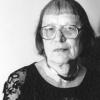Science & Technology
 <p>While a new study led by the University of Colorado Boulder shows the risk of human conflict in East Africa increases somewhat with hotter temperatures and drops a bit with higher precipitation, it concludes that socioeconomic, political and geographic factors play a much more substantial role than climate change.</p>
<p>While a new study led by the University of Colorado Boulder shows the risk of human conflict in East Africa increases somewhat with hotter temperatures and drops a bit with higher precipitation, it concludes that socioeconomic, political and geographic factors play a much more substantial role than climate change.</p>- <p> </p>
<p>Deborah Jin, an adjoint professor of physics at the University of Colorado Boulder and a fellow of the National Institute of Standards and Technology, has been awarded the L’Oréal-UNESCO For Women in Science award.</p>
<p>Jin also is a fellow of JILA, a joint institute of CU-Boulder and NIST located on the CU campus. She teaches both undergraduate and graduate students and was one of five recipients who each will receive $100,000 at an awards ceremony in Paris next March. She was the only recipient in North America.</p>  <p>As a child, Deborah Jin remembers going to company holiday parties where most of the attendees were men and they assumed she must be there because of her physicist father. But they were mistaken. She was there because of her physicist mother.</p>
<p>As a child, Deborah Jin remembers going to company holiday parties where most of the attendees were men and they assumed she must be there because of her physicist father. But they were mistaken. She was there because of her physicist mother.</p>- <p>CU system news release</p>
<p>DENVER – Six University of Colorado faculty members will be named Distinguished Professors, the most prestigious honor for faculty at the university.</p>
<p>Each year, the recognition goes to faculty members who demonstrate exemplary performance in research or creative work, a record of excellence in classroom teaching and supervision of individual learning, and outstanding service to the profession, university and its affiliates.</p>  A rock star of philosophy in an era that defined the term, CU Professor Hazel Barnes’ teaching resonated with sixties culture and her expertise shaped the public discussion. Barnes taught at the University for 35 years, forging interdisciplinary connections between philosophy, Greek literature and other areas of humanities. In 1979 she was the first woman named as a CU Distinguished Professor and within a few years of her 1986 retirement the most prestigious faculty award on campus, the Hazel Barnes Prize, was established in her honor.
A rock star of philosophy in an era that defined the term, CU Professor Hazel Barnes’ teaching resonated with sixties culture and her expertise shaped the public discussion. Barnes taught at the University for 35 years, forging interdisciplinary connections between philosophy, Greek literature and other areas of humanities. In 1979 she was the first woman named as a CU Distinguished Professor and within a few years of her 1986 retirement the most prestigious faculty award on campus, the Hazel Barnes Prize, was established in her honor.- <p>Milos Popovic, assistant professor of electrical, computer and energy engineering at the University of Colorado Boulder, has been awarded the prestigious Packard Fellowship in Science and Engineering.</p>
<p>Popovic is one of 16 scientific researchers from universities across the country to receive this year’s fellowship, announced by the David and Lucile Packard Foundation this week. Each of the fellows will receive an unrestricted research grant of $875,000 over five years.</p> - <p>Households with plug-in hybrid vehicles, or PHVs, and smart meters actively managed how, when and where they charged their cars based on electricity rates but rarely took advantage of online feedback, a University of Colorado Boulder study found.</p>
<p><span id="">CU-Boulder’s Renewable and Sustainable Energy Institute, or RASEI, today presented findings from the two-year study -- one of the only of its kind, combining both household and vehicle data in a smart-grid context.</span></p> - <p>Consumer demand is making aluminum cans more relevant than ever, according to a report from the University of Colorado Boulder’s Leeds School of Business.</p>
<p>More than 92 billion aluminum beverage cans were sold in the U.S. in 2011 reflecting a decline in annual sales -- particularly among standard 12-ounce cans -- since the industry’s peak five years prior.</p> - <p>A new long-term study of human twins by University of Colorado Boulder researchers indicates the makeup of the population of bacteria bathing in their saliva is driven more by environmental factors than heritability.</p>
 <div>
<div>
<div id="block-system-main">
<div>
<div>
<div>
<div>
<div>
<p>Senior Christina Jones decided to major in civil engineering because she likes construction projects. Little did she know when she made that decision that she would be selected as an intern to work on one of the largest and most significant projects underway in the whole world—the expansion of the nearly 100-year-old Panama Canal.</p></div></div></div></div></div></div></div>


